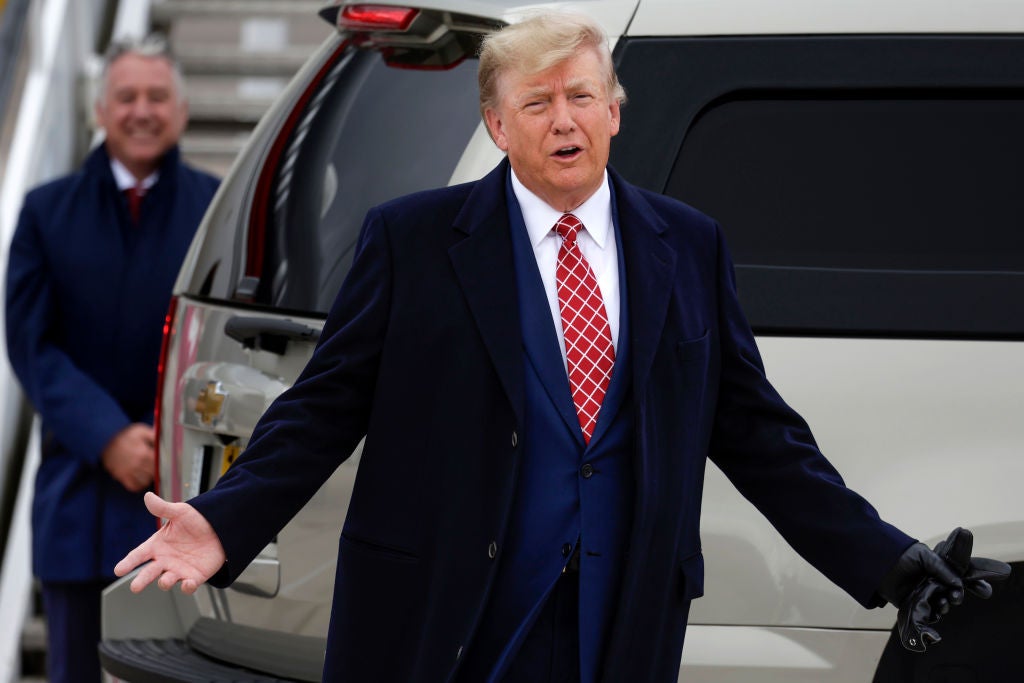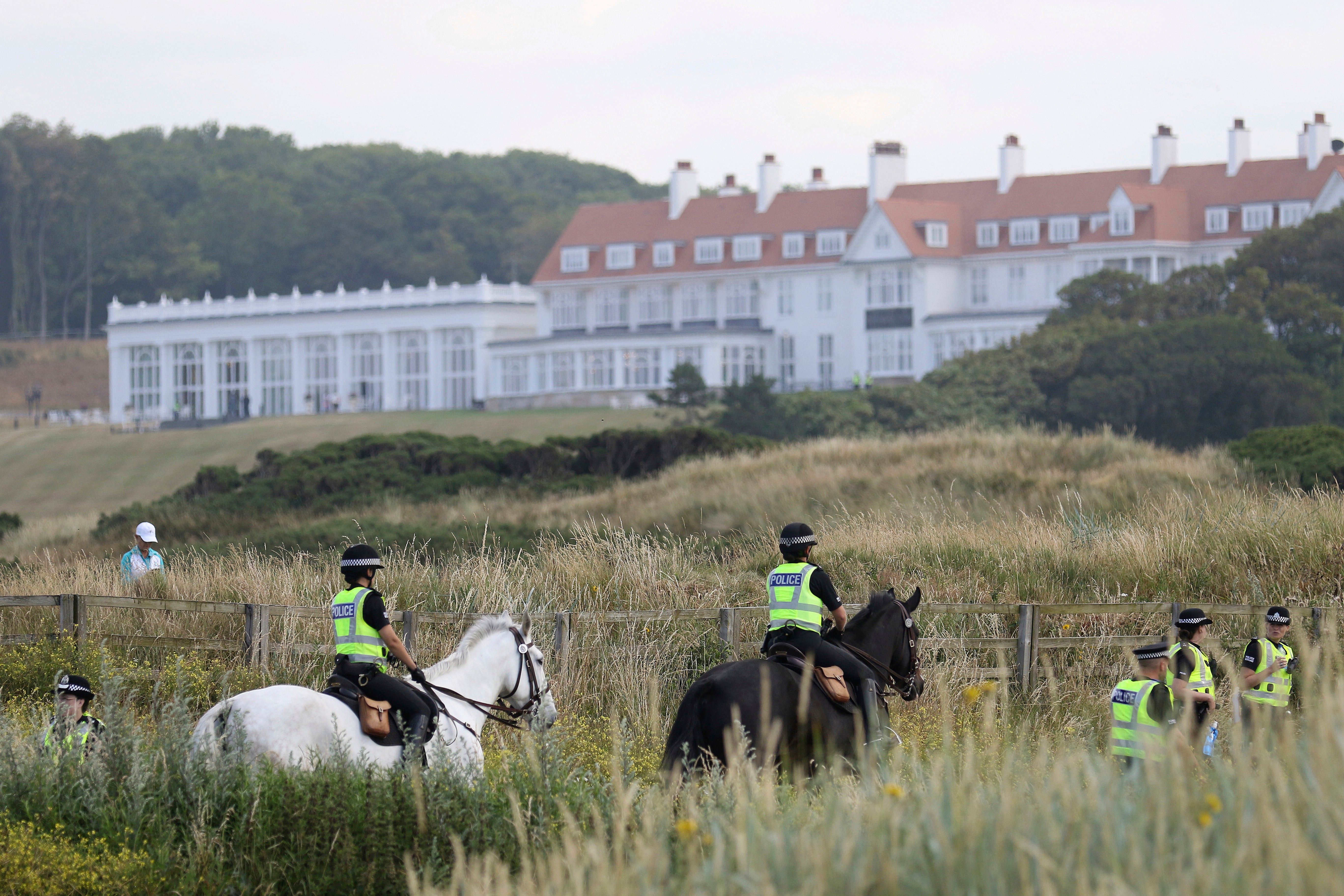Scottish lawmakers demand Trump to open golf course books after former president was convicted in NY fraud case
Ministers asked to look again at request for use of Unexplained Wealth Order against former the former president in light of the New York civil fraud judgment against him in February
Presidential hopeful Donald Trump is facing calls for an investigation into his business assets in Scotland from the Scottish Green Party in light of the recent civil judgement against the former president by a court in New York.
The Scottish Greens have previously been unsuccessful in their efforts to have the Trump Organization’s Scottish golf courses – in Aberdeenshire and Ayrshire – investigated via an Unexplained Wealth Order, which empowers law enforcement to investigate and potentially confiscate a suspect’s assets.
Renewing his call for an investigation into Trump, the party’s co-leader Patrick Harvie pointed to February’s New York civil case against the Republican politician, which saw Judge Arthur Engoron rule that Trump, his company and its key executives had routinely misled bankers and insurers over the value of their assets between 2011 and 2021 in order to obtain favourable terms from those lenders.
Trump and his associates were ordered to pay $355 million in fines plus more than $110 million in interest.
The GOP’s presumptive presidential nominee later posted a $175 million bond and is appealing the ruling.
The Scottish Greens co-leader has now written to Scotland’s first minister John Swinney and lord advocate Dorothy Bain saying the issue should be considered again.
“The verdict from New York, and the litany of scandals surrounding Donald Trump, underlines the urgent need to get to the bottom of the former president’s finances and the business he runs,” Harvie said.
“With every passing day we are seeing even more serious questions about the honesty, integrity and basic trustworthiness of the former president.

“I urge Scottish ministers to look again at the request for an Unexplained Wealth Order and to follow the money to see where it goes.
“The case for Scottish ministers to investigate Trump is now urgent and overwhelming.
“Scotland cannot be a country where anyone with the money is able to buy whatever land and property they want without question.”
In his letter to the Scottish government, Harvie noted: “We now have indisputable and independent evidence in the public domain that Trump’s business dealings, including those in Scotland, were linked to fraud.
“Yet while Trump is finally being held to account by the legal system in the US, Scotland’s Civil Recovery Unit have provided the same comment that they provided in 2021, that they cannot ‘confirm or deny’ whether a civil recovery investigation has commenced.”

A Scottish government spokesperson said: “A decision on whether to apply to the Court of Session for an Unexplained Wealth Order is made by the Civil Recovery Unit.
“It would not be appropriate to comment as those decisions are entirely operational matters for the Civil Recovery Unit.”
A UWO is defined by the UK government as “an investigatory order placed on a respondent whose assets appear disproportionate to their income to explain the origins of their wealth” and was first introduced under the Criminal Finances Act 2017.
In response to the outbreak of Russia’s war in Ukraine in February 2022, Britain’s Conservative government brought forward new legislative reforms to empower the National Crime Agency to use UWO’s to target suspicious individuals in order to crack down on Russian money-laundering in the UK.
Bookmark popover
Removed from bookmarks